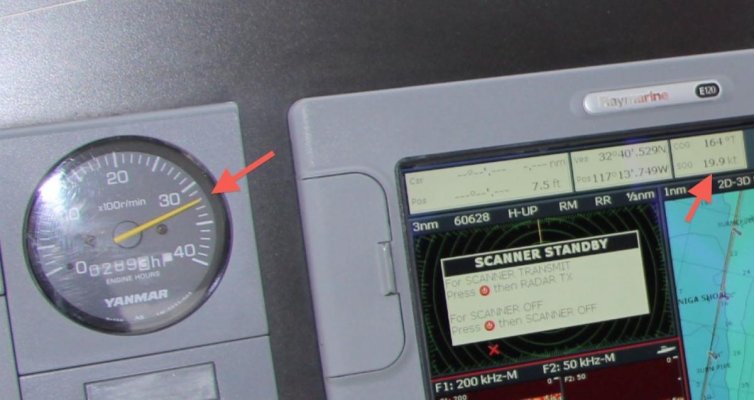Agreed. On a nautical mile per gallon my Twin Comanche does as well as my Cessna 182.
With respect to training there is no question that you have to remain sharp when piloting a multi-engine aircraft. I’ve had three engine out situations in a Twin and all ended well at an airport. In my opinion, a Twin is much more dangerous in the initial climb phase. An engine failure in the first thousand feet or so has to be handled quickly and correctly as loss of control is likely going to lead to a fatality. This is where comparing boats and planes are like Apples and Oranges.
Twins are likely to be flown in poor weather and at night when the inherent risk of flight is higher. Much of the increased fatal rate of Twins can be attributed to the missions they are expected to perform. I suppose there is a valid argument that some missions on the water favor a multi-engine craft. Of course, some of the largest ships in the world, container ships, run on a single.
The decision to use a single versus twin engine vessel comes down to an individual choice. If you are operating in a near coast environment with towing assets readily available then a single is an obvious choice. If you are operating in the ocean off the Pacific Coast of Baja perhaps the choice is more difficult.
Interesting talk about planes. Overall a twin engine plane is more expensive to run that its counterpart twin, unlike a boat. Some do well like your Twin Commanche. And the 182 is not very efficient. But a lot has to do with speed. My old B55 Baron would use about the same fuel or less than the Twin Commanche if flown at the same speed and payload, and the Bonanza is more efficient that either of them.
But a different animal if your plane croaks an engine. Can't just throw the anchor out.


 :lol:
:lol: